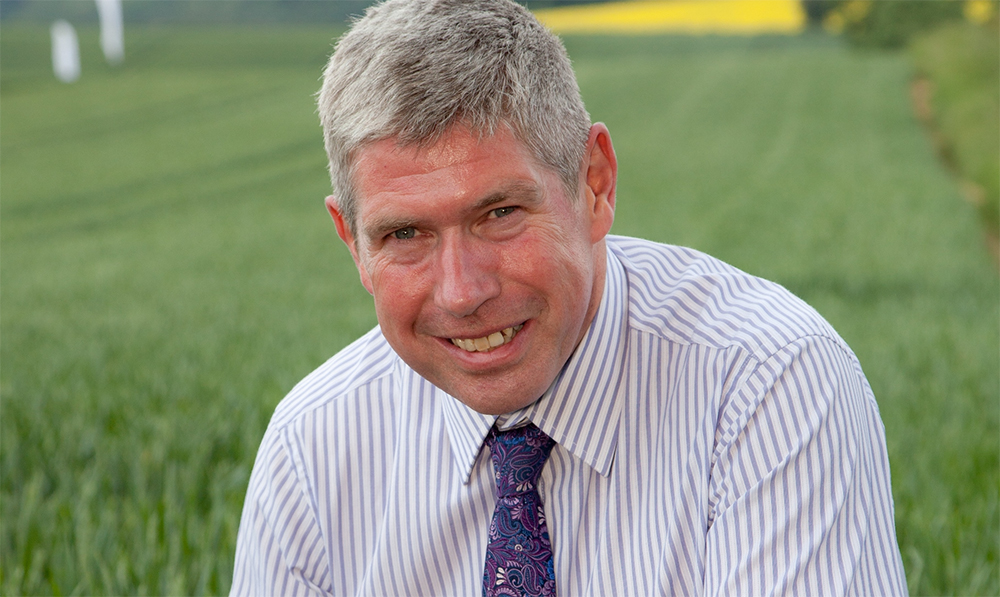
Conflicting issues around whether glyphosate is a carcinogenic hazard arose from a report in March 2015 by the International Agency for Research on Cancer, which concluded that it was ‘probably carcinogenic to humans’.
Andrew McShane, managing director of Hutchinsons, looks at how the role farmers are playing in the process to maintain glyphosate‘s approval by lobbying their MEP’s, has had a positive impact on the decisions made in Strasbourg.
However in November 2015, the European Food Safety Authority (EFSA) published its own findings concluding “glyphosate was unlikely to pose a carcinogenic hazard to humans”.
On 13th April the European parliament debated whether the glyphosate approval should be renewed although the actual decision rested with the EU Commission.
UK growers were urged by the NFU to contact their MEP’s to speak out on the importance of glyphosate to their businesses in the fight against yield-robbing weeds such as blackgrass, and for crop desiccation before harvest.
Hutchinsons mobilized the support of their agronomy teams and their customers to also lobby extensively in support of a science based debate when reviewing the evidence regarding glyphosate.
The 13th April outcome was a resolution passed in Strasbourg by 374 votes to 225 (102 abstentions) with MEPs recommending that the European Commission renew glyphosate’s marketing authorisation for another seven years, rather than the 15 originally proposed.
Subsequently however, the EU Standing Plant Animal Food and Feed Committee (SCPAFF) could not reach a qualified majority when they voted on the re-approval of glyphosate and it now remains to be seen whether a vote will take place in the coming weeks, or whether the commission will be required to cast the deciding vote.
Mr McShane outlines that the next stage of this review process is unclear.
However even if the glyphosate approval lapses after 30th June, there is normally a considerable use-up period for revoked products to allow the supply chain and growers stores to be cleared in the unlikely circumstance that glyphosate was eventually revoked.
Industry collaboration
“As a business Hutchinsons has been very committed to industry stewardship to keep what are extremely important, scientifically proven and tested products available for UK growers. It is vital to highlight the scientific evidence supporting agrochemicals.”
“Glyphosate is a key component of the arable farmer’s toolbox and we have been trying hard to help industry influencers understand what impact the loss of glyphosate as a broad–spectrum herbicide would have on our clients and our advisors’ ability to produce financially viable crops.”
Mr McShane points out that whilst playing an active lobbying role with fellow advisory businesses through the trade association AIC, Hutchinsons also wrote to their farmer clients to encourage them to lobby their MEPs.
“It is important for politicians and regulators to hear both sides of the argument on these issues and we wrote to growers to help ensure that the voice of the British farming community would be heard.”
Tom Bradshaw, NFU regional crops board chairman for East Anglia, received one of these letters and is delighted that Hutchinsons have actively engaged in the process.
He said: “This is an excellent example of the whole industry working together on a vitally important issue. We are doing all we can with the NFU to encourage members to get involved and it is reassuring that companies such as Hutchinsons are taking the matter so seriously as well and doing something about it.”
One farmer not only wrote to his MEP he also visited him in Brussels. Mr Sandy Wade-Gery - who runs an all arable farming estate in Bedfordshire - believes that the loss of glyphosate is one of the biggest threats to his business that he has ever faced since starting farming back in the 1970’s.
"It is the most valuable product on our farm and I don’t think we could continue to farm without it. So we wrote to and visited our MEP for the east of England, Geoffrey van Orden, to make sure that he clearly understood what was at stake.
"He took on board our concerns and he did understand them. It was reassuring to hear that the UK was better represented by bodies such as the CPA and NFU than many other countries in Europe."
Mr Wade-Gery’s agronomist Phillip Styles, questions if environmental groups are aware of the implications of the loss of glyphosate on current farm practices.
"We would be driven to increasing our cultivations in order to manage weeds and there are all sorts of environmental issues associated with that, contributing to more greenhouse gases and soil erosion.”
"We would be forced to return to using older chemistry and we really don’t want to do that – as that’s a step backwards in sustainable farming."
Whilst good work has been done at this stage, the threat of glyphosate revocation has not gone away Mr McShane highlights.
"We absolutely cannot afford to lose our single most important active ingredient at any level, for example, it is still unclear how pre-harvest uses will be legislated.
"Hutchinsons, together with its clients and others in the agricultural community, must continue to argue the case for the retention of this essential active ingredient."
